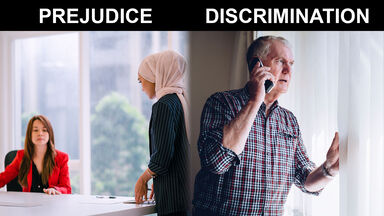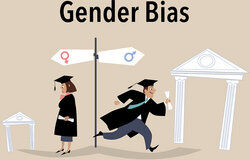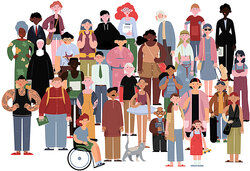Prejudice Definition
prĕjə-dĭs
prejudiced, prejudices, prejudicing
noun
prejudices
A judgment or opinion formed before the facts are known; preconceived idea, favorable or, more usually, unfavorable.
Webster's New World
The holding of such judgments or opinions.
Webster's New World
A judgment or opinion held in disregard of facts that contradict it; unreasonable bias.
A prejudice against modern art.
Webster's New World
Suspicion, intolerance, or irrational hatred of other races, creeds, social classes, etc.
Webster's New World
Detriment or harm caused to a person, especially in a legal case.
The delay operated to her prejudice.
American Heritage
Synonyms:
verb
prejudiced, prejudices, prejudicing
To injure or harm, as by some judgment or action.
Webster's New World
To cause to have or show prejudice; bias.
Webster's New World
To have a negative impact on someone's position, chances etc.
Wiktionary
Synonyms:
idiom
without prejudice
- without detriment or injury
- without dismissal of or detriment to (a legal right, claim, etc.)
Webster's New World
Other Word Forms of Prejudice
Noun
Singular:
prejudicePlural:
prejudicesIdioms, Phrasal Verbs Related to Prejudice
Origin of Prejudice
-
Middle English from Old French from Latin praeiūdicium prae- pre- iūdicium judgment (from iūdex iūdic- judge deik- in Indo-European roots)
From American Heritage Dictionary of the English Language, 5th Edition
-
From Old French prejudice, from Latin praeiÅ«dicium (“previous judgment or damage"), from prae- (“before") + iÅ«dicium (“judgment").
From Wiktionary
Find Similar Words
Find similar words to prejudice using the buttons below.





